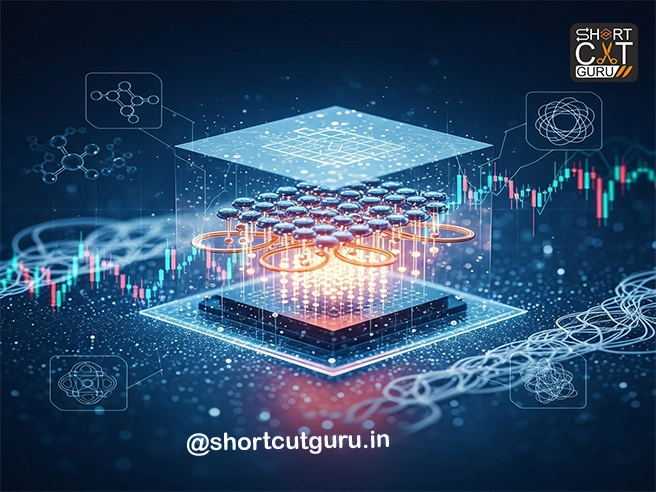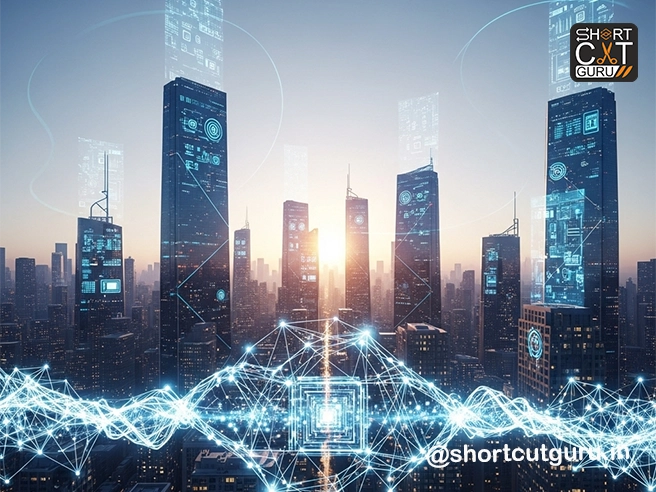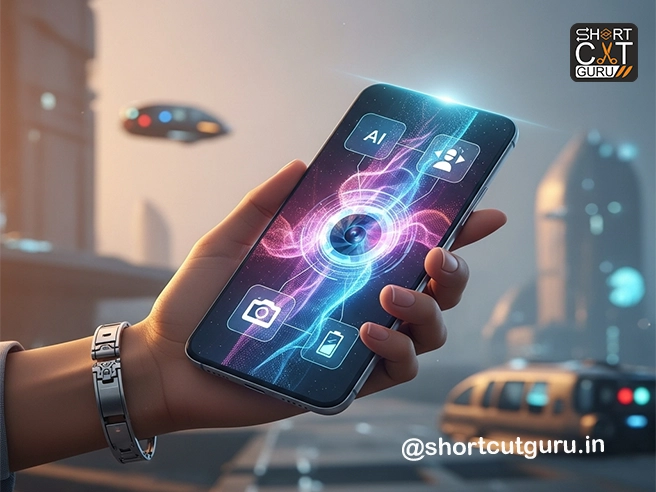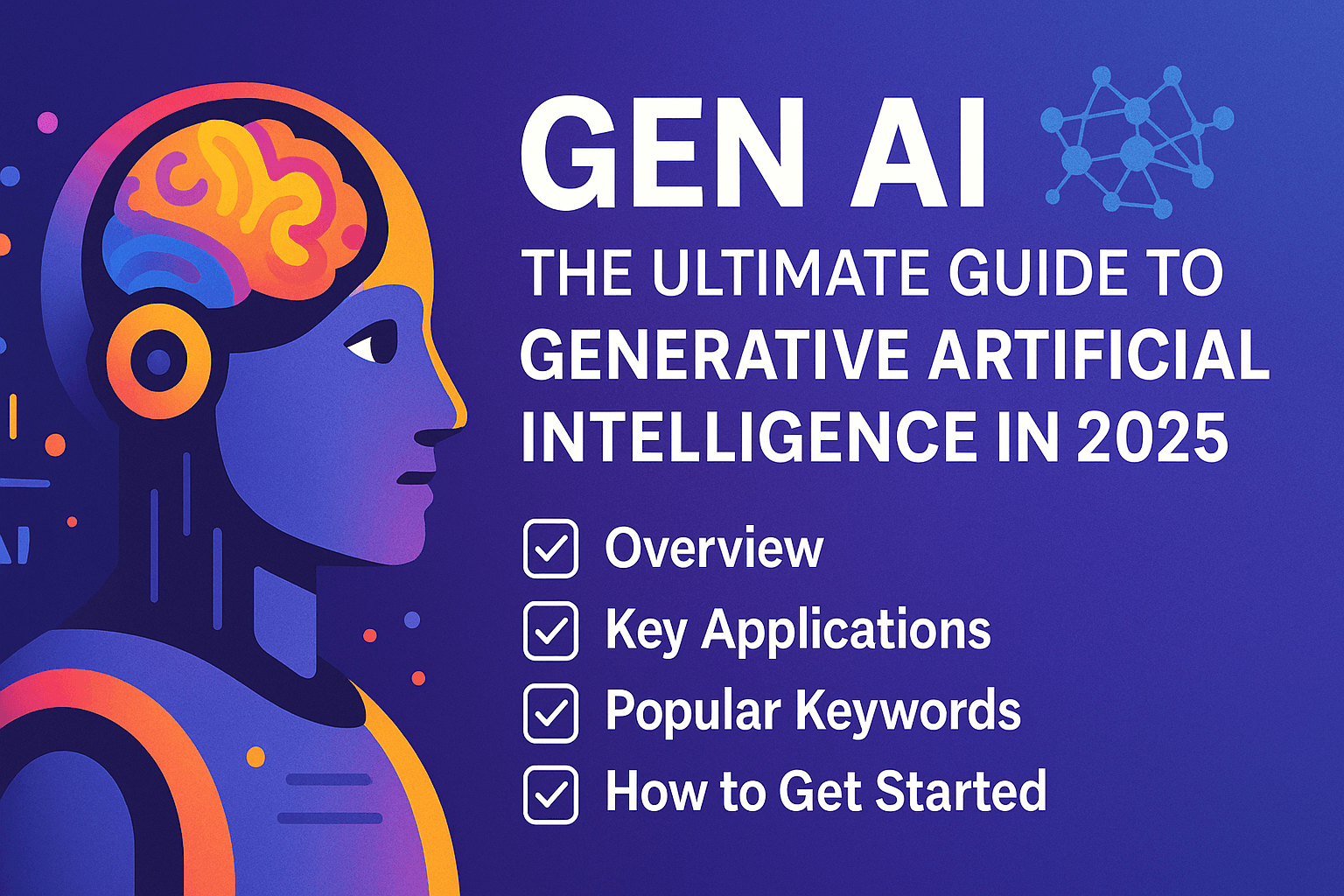The Future is Now: Top Emerging Tech Trends Shaping 2025 and Beyond
The pace of technological innovation is accelerating at an unprecedented rate. What seemed like science fiction just a few years ago is rapidly becoming our reality. As we navigate through 2025, several emerging tech 2025 trends are not just capturing headlines but fundamentally reshaping industries, societies, and our daily lives. From hyper-intelligent AI to groundbreaking sustainable solutions, understanding these advancements is crucial for anyone looking to stay ahead in the digital age.
This article delves into the most impactful technological shifts, offering insights into their potential and what they mean for the future. Get ready to explore the innovations that are not just trending, but truly transformative.
Table of Contents
The AI Revolution: Beyond Large Language Models
Artificial Intelligence continues its relentless march forward, transcending the capabilities of traditional large language models (LLMs). The focus is now shifting towards more autonomous and proactive AI systems.
- Agentic AI: These intelligent agents are designed to understand complex goals, plan multi-step actions, and execute tasks independently, often by interacting with other software and real-world systems. Imagine an AI that not only answers your query but also books your appointments, manages your smart home, or even orchestrates complex business processes without constant human oversight. This move towards self-executing AI is poised to revolutionize productivity across all sectors.
- Multimodal AI: Moving beyond text, multimodal AI integrates and understands various forms of data – text, images, audio, video, and even sensory input. This allows for more nuanced comprehension and generation, leading to applications like AI companions that can interpret your emotions, create multimedia content from a simple prompt, or enhance diagnostic capabilities in healthcare by analyzing diverse patient data.
For further reading on AI, check out our article on [Understanding Generative AI’s Impact on Content Creation].
Unlocking New Frontiers with Quantum Computing
While still in its nascent stages, Quantum Computing is rapidly progressing from theoretical concept to tangible reality. Its potential to solve problems currently intractable for even the most powerful classical supercomputers is immense.

- Drug Discovery and Material Science: Quantum computers can simulate molecular interactions with unparalleled accuracy, accelerating the discovery of new drugs, optimizing existing pharmaceuticals, and engineering novel materials with bespoke properties. This could lead to breakthroughs in medicine, energy storage, and manufacturing.
- Financial Modeling and Optimization: The ability to process vast datasets and complex variables simultaneously makes quantum computing ideal for intricate financial modeling, risk assessment, and optimizing investment strategies. It could also enhance supply chain logistics and complex resource allocation.
- Cybersecurity Implications: While posing a future threat to current encryption methods, quantum computing is also being explored for developing quantum-resistant cryptographic algorithms, ensuring the security of our digital infrastructure in the post-quantum era.
Sustainable Tech: Innovating for a Greener Future
The urgency of climate change and environmental sustainability is driving significant innovation in Sustainable Tech. Technologies are emerging that not only reduce our ecological footprint but also create entirely new paradigms for living and working.
- Green Energy Technologies: Beyond traditional solar and wind, advancements in structural battery composites, osmotic power systems, and advanced nuclear technologies are offering new avenues for clean and efficient energy generation and storage. These innovations are crucial for powering the growing demands of our interconnected world, including the energy-intensive operations of AI and data centers.
- Circular Economy Solutions: Technology is enabling more efficient recycling, waste reduction, and the repurposing of materials. Digital twins can simulate product lifecycles to minimize waste, while IoT sensors optimize resource consumption in industries.
- Bio-integrated Technologies: From genetically engineered crops that are more resilient to climate change to bio-inspired materials and biological computing, the convergence of technology and biology offers powerful solutions for environmental challenges.
Discover more about how technology is combating climate change in our piece on [Innovations in Renewable Energy Technologies].
Digital Transformation
Digital transformation is the process of integrating digital technologies into every aspect of a business, fundamentally changing how it operates and delivers value to customers. It goes beyond simply adopting new tools—it requires a cultural shift, where organizations embrace innovation, agility, and data-driven decision-making to stay competitive in a rapidly evolving digital landscape.
The Future of Connectivity: Beyond 5G
The foundation of all these emerging technologies is robust and pervasive connectivity. While 5G is still rolling out globally, the research and development for its successor, the future of connectivity, are well underway, alongside other groundbreaking communication technologies.
- 6G Research and Development: Beyond 5G, 6G promises even higher bandwidth, lower latency, and seamless integration with AI and sensing capabilities. This will unlock truly immersive extended reality (XR) experiences, enable fully autonomous systems, and facilitate real-time, global data exchange for applications we can only begin to imagine.
- Satellite Internet Expansion: The proliferation of low-earth orbit (LEO) satellite constellations is bringing high-speed internet to remote and underserved areas globally, bridging the digital divide and enabling ubiquitous connectivity for IoT devices and critical infrastructure.
- Edge Computing Evolution: As more data is generated at the “edge” – closer to the source – edge computing is becoming even more critical. It processes data locally, reducing latency and bandwidth requirements, which is essential for real-time AI applications, autonomous vehicles, and smart city initiatives.
Conclusion: Navigating the Tech Horizon
The landscape of emerging tech 2025 is dynamic and brimming with potential. From the autonomous capabilities of Agentic AI and the mind-bending power of Quantum Computing to the crucial advancements in Sustainable Tech and the ever-expanding reach of the Future of Connectivity, these innovations are not isolated phenomena. They are interconnected, creating a powerful synergy that will drive the next wave of human progress.
Staying informed about these trends is not just for tech enthusiasts; it’s essential for businesses, policymakers, and individuals alike to prepare for the opportunities and challenges they present. The future is not just coming; it’s being built, piece by technological piece, right now.
Ready to dive deeper into how these emerging technologies can impact your business or career? Contact us today for a consultation on navigating the tech horizon!
Other AI Tools :
FAQ Section:
Q1: What is the primary difference between traditional AI and Agentic AI? A1: Traditional AI typically responds to specific queries or executes predefined tasks. Agentic AI goes beyond this by autonomously understanding complex goals, planning multi-step actions, and interacting with various systems to achieve those goals without continuous human intervention.
Q2: How will Quantum Computing affect everyday life by 2025? A2: While still largely in the research and enterprise phase, by 2025, quantum computing’s impact on everyday life will primarily be indirect. It will accelerate breakthroughs in drug discovery, materials science, and financial modeling, leading to new medicines, more efficient products, and improved economic stability that benefit consumers.
Q3: What role does sustainable tech play in the broader emerging tech landscape? A3: Sustainable tech is a critical and growing component of the emerging tech landscape. It focuses on developing innovations that address environmental challenges, reduce carbon footprints, and promote resource efficiency, ensuring that technological progress is also responsible and beneficial for the planet.













